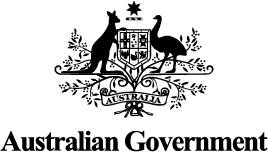On 28 March 2025 the government assumed a Caretaker role. Information on websites maintained by the Department of Climate Change, Energy, the Environment and Water will be published in accordance with the Guidance on Caretaker Conventions until after the conclusion of the caretaker period.
Inspector-General's report identifies some areas for improvement - but no 'smoking gun' for water compliance
Inspector-General's report identifies some areas for improvement - but no 'smoking gun' for water compliance
Inspector-General's report identifies some areas for improvement – but no 'smoking gun' for water compliance
The Inspector-General of Water Compliance (IGWC), The Honourable Troy Grant has released his first report about a review of the compliance and enforcement practices of the Murray Darling Basin states. The IGWC report is drawn from advice from one of Australia’s emeritus Auditor-Generals who was commissioned to report back on Basin-wide compliance and enforcement. The Inspector-General commissioned former Victorian and Western Australian Auditor-General Mr Des Pearson AO to report to him on the effectiveness of water compliance across the Murray Darling Basin.
If people were looking for major failures and breakdowns in systems, operations, practices or policy as the ‘smoking gun’ for the challenges facing the Murray Darling Basin, Australia’s largest water resource, then they might be a bit disappointed,” said Mr Grant, Inspector-General of Water Compliance. “That said, like most in-depth evidence-based investigative bodies of work, this review did find areas that could be further improved.”
“If we want the communities of the Murray Darling Basin to trust that their most precious natural resource is being managed fairly and appropriately, then the Basin States need to have a more consistent approach to water management and compliance.”
Mr Grant decided it was important to get an independent evidence base on how states are approaching compliance. Mr Pearson has helped identify some key areas for improvement, particularly in relation to consistency and transparency.
“There is still a tendency to highlight the jurisdictional differences and alleged confidentiality and privacy requirements which inhibit collaboration. There is still a reluctance to consider alternative approaches. This review observed an attitude more of ‘why it can’t be done’ rather than a more purposeful ‘how can we make it work better’,” said Mr Pearson.
Mr Grant will now implement five key action items to address concerns raised in the initial findings of the Des Pearson Review. This includes a quarterly Regulatory Leaders Forum, which started in October 2021, to provide the opportunity for the regulatory leaders from Basin States to discuss current issues and share better practice.
“Other action items I’m committed to are to develop and establish improved Basin-wide public reporting on performance around water compliance, establish an IGWC metering standard to set guidance for minimum standards applying to metering across the Basin, as well as a review into unmeasured take which I plan to have completed in early 2023,” said Mr Grant.
The final action item is to determine the harm associated with unauthorised take from Basin water resources that could be used consistently across the Basin for enforcement actions. This is planned for completion at the end of 2024. This report can be found on the IGWC’s website: igwc.gov.au. Mr Pearson’s report will be published together with the IGWC Annual Report in October.





